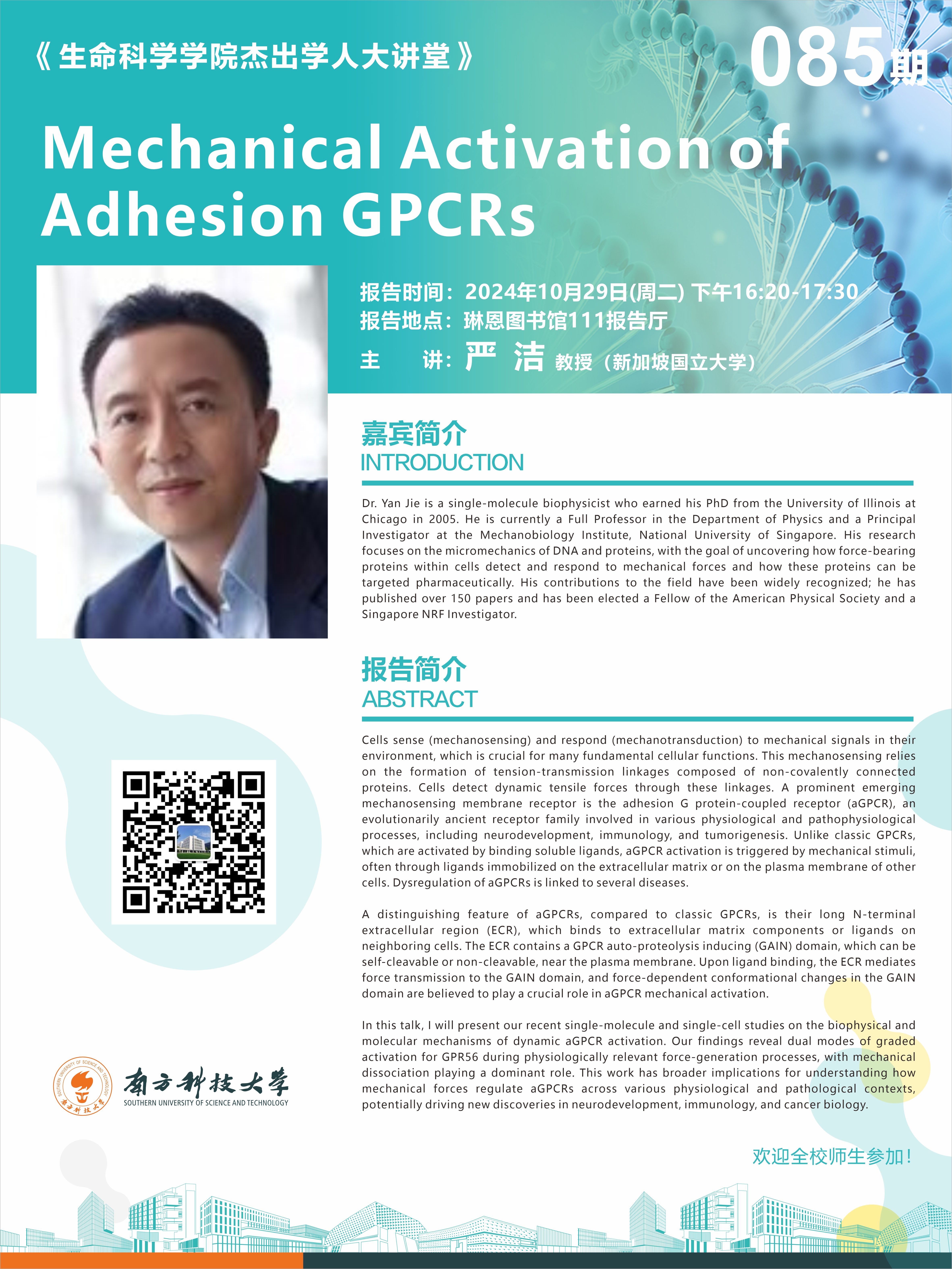
主讲人: 严洁 教授(新加坡国立大学)
时间: 2024年10月29日(周二)下午16:20-17:30
地点: 琳恩图书馆111报告厅
题 目:Mechanical Activation of Adhesion GPCRs
主 讲:严洁 教授
时 间:2024年10月29日(周二)下午16:20-17:30
地 点:琳恩图书馆111报告厅
报告摘要:
Cells sense (mechanosensing) and respond (mechanotransduction) to mechanical signals in their environment, which is crucial for many fundamental cellular functions. This mechanosensing relies on the formation of tension-transmission linkages composed of non-covalently connected proteins. Cells detect dynamic tensile forces through these linkages. A prominent emerging mechanosensing membrane receptor is the adhesion G protein-coupled receptor (aGPCR), an evolutionarily ancient receptor family involved in various physiological and pathophysiological processes, including neurodevelopment, immunology, and tumorigenesis. Unlike classic GPCRs, which are activated by binding soluble ligands, aGPCR activation is triggered by mechanical stimuli, often through ligands immobilized on the extracellular matrix or on the plasma membrane of other cells. Dysregulation of aGPCRs is linked to several diseases.
A distinguishing feature of aGPCRs, compared to classic GPCRs, is their long N-terminal extracellular region (ECR), which binds to extracellular matrix components or ligands on neighboring cells. The ECR contains a GPCR auto-proteolysis inducing (GAIN) domain, which can be self-cleavable or non-cleavable, near the plasma membrane. Upon ligand binding, the ECR mediates force transmission to the GAIN domain, and force-dependent conformational changes in the GAIN domain are believed to play a crucial role in aGPCR mechanical activation.
In this talk, I will present our recent single-molecule and single-cell studies on the biophysical and molecular mechanisms of dynamic aGPCR activation. Our findings reveal dual modes of graded activation for GPR56 during physiologically relevant force-generation processes, with mechanical dissociation playing a dominant role. This work has broader implications for understanding how mechanical forces regulate aGPCRs across various physiological and pathological contexts, potentially driving new discoveries in neurodevelopment, immunology, and cancer biology.
嘉宾简介:
Dr. Yan Jie is a single-molecule biophysicist who earned his PhD from the University of Illinois at Chicago in 2005. He is currently a Full Professor in the Department of Physics and a Principal Investigator at the Mechanobiology Institute, National University of Singapore. His research focuses on the micromechanics of DNA and proteins, with the goal of uncovering how force-bearing proteins within cells detect and respond to mechanical forces and how these proteins can be targeted pharmaceutically. His contributions to the field have been widely recognized; he has published over 150 papers and has been elected a Fellow of the American Physical Society and a Singapore NRF Investigator.